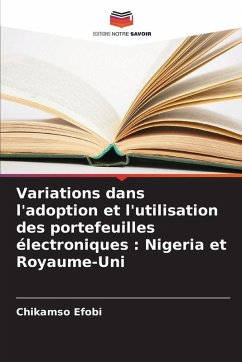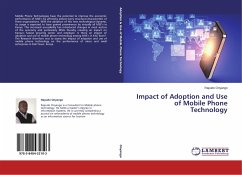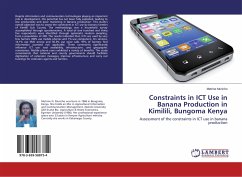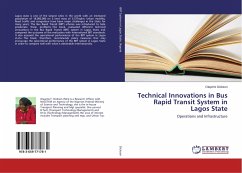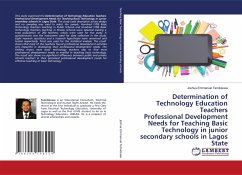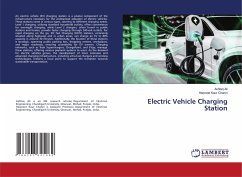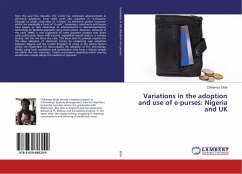
Variations in the adoption and use of e-purses: Nigeria and UK
Versandkostenfrei!
Versandfertig in 6-10 Tagen
41,99 €
inkl. MwSt.

PAYBACK Punkte
21 °P sammeln!
Over the past few decades, the world has witnessed advancements in electronic payments. From debit cards also regarded as "e-cheques" through to credit cards seen as "e-loans" to electronic purses "e-purses" which are essentially a form of "e-cash", consumers, merchants and issuers have begun to take advantage of advancements in telecommunication technology to facilitate payments using these means. However, although in the early 1990s, it was suggested by some payment analysts that smart cards particularly those with e-purse capabilities would lead to a cashless society, this has not been the ...
Over the past few decades, the world has witnessed advancements in electronic payments. From debit cards also regarded as "e-cheques" through to credit cards seen as "e-loans" to electronic purses "e-purses" which are essentially a form of "e-cash", consumers, merchants and issuers have begun to take advantage of advancements in telecommunication technology to facilitate payments using these means. However, although in the early 1990s, it was suggested by some payment analysts that smart cards particularly those with e-purse capabilities would lead to a cashless society, this has not been the case. This book aims to provide reasons for this slow adoption of electronic purses by comparing user adoption between Nigeria and the United Kingdom to arrive at the salient factors which are responsible for discouraging the adoption of this technology. Finally, using both qualitative and quantitative data from a diverse sample set within the two countries, I reach conclusions regarding which country would more readily adopt this method of payment.




